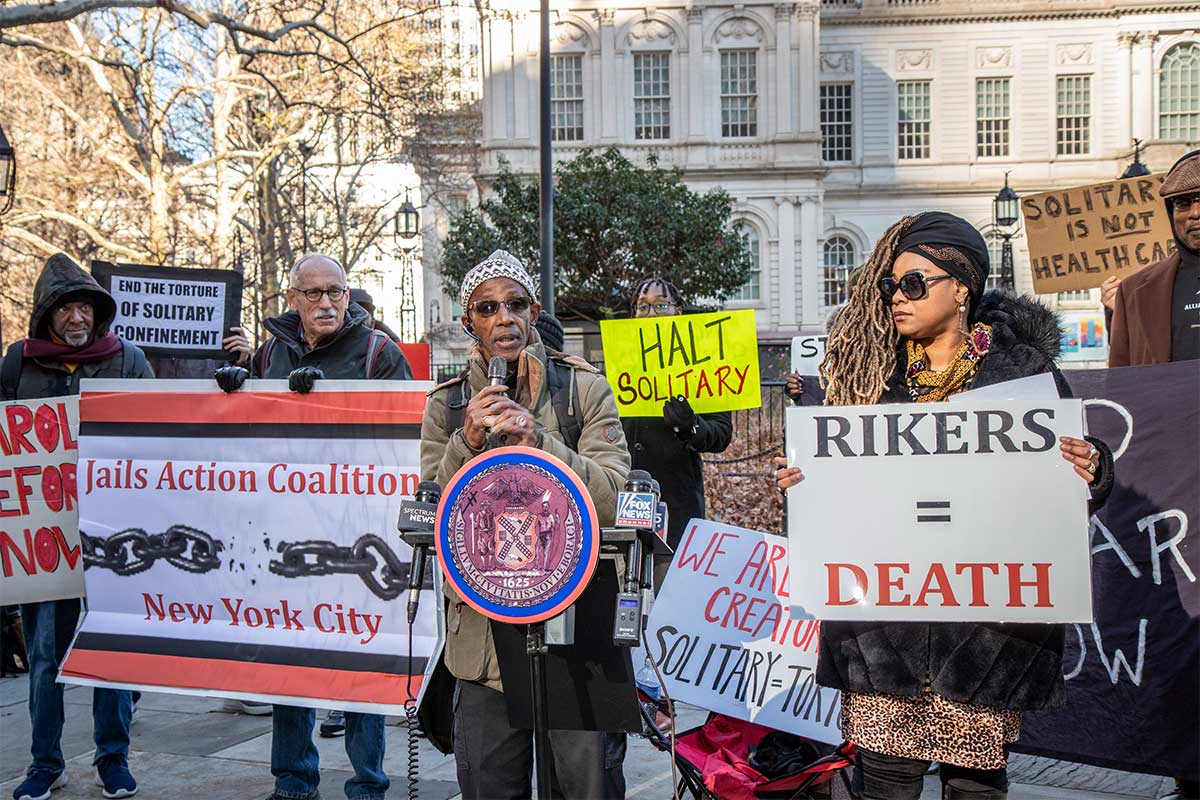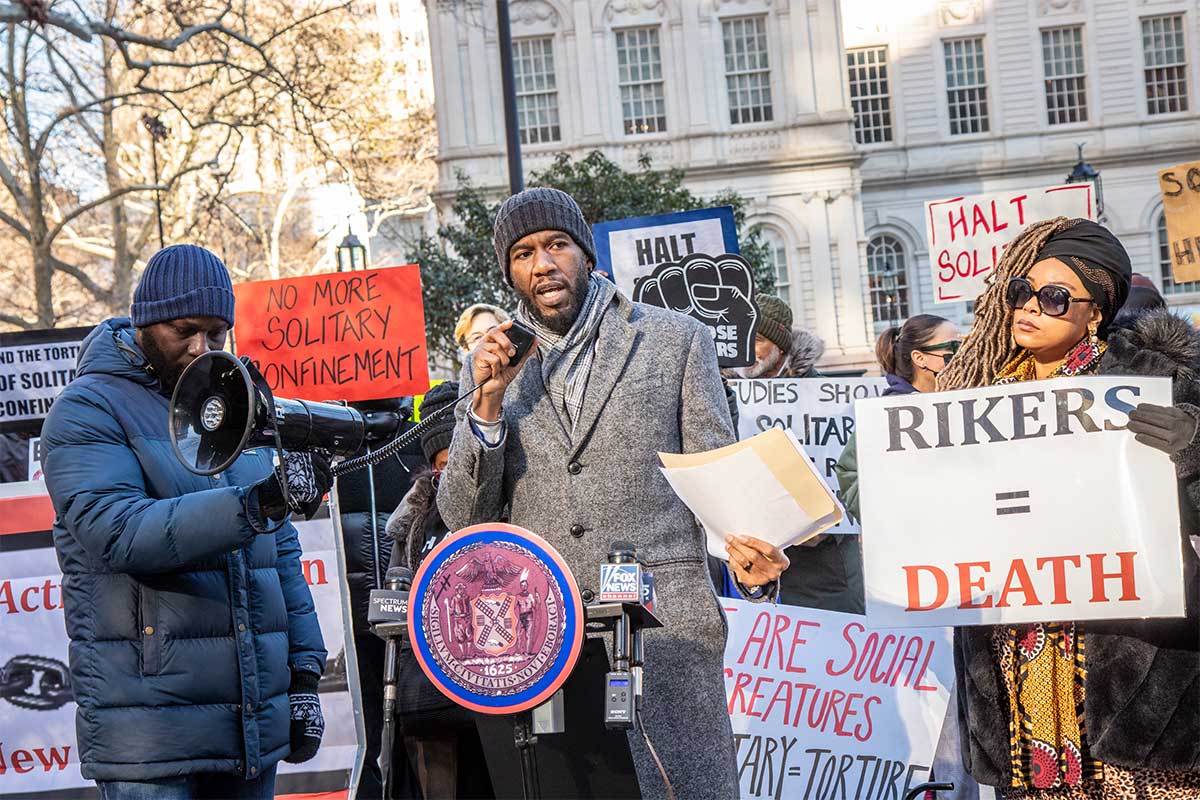Just hours before our law to finally ban solitary confinement in New York City was set to take effect, Mayor Adams declared a ‘state of emergency’ – without real public notice or justification – expressly to block the law from taking effect and keep people suffering in solitary on Rikers.
Since that Saturday night announcement on July 27, the mayor has made clear that he never intended to implement or even prepare for the law to take effect. Instead, the administration has asserted falsehoods about the legislation, Local Law 42 – its purpose, impact, and language – as well as the current reality on Rikers Island.
This is not the first time the mayor has deployed misinformation to justify an unjustifiable decision. When the policing transparency law, the ‘How Many Stops Act,’ was passed alongside the solitary ban, the administration spread misinformation about the bill – and we debunked those myths. Now again, it is clear that there is a need to address the incorrect statements and insinuations about the law that the ‘law and order’ administration is refusing to implement.

The realities about the law the administration refuses to read are:
Solitary Confinement is Happening on Rikers
The mayor has said again and again that there has not been solitary confinement in New York City since 2019, when state law banned it – while at the same time insisting that banning solitary would be harmful. In reality, the harm of prolonged isolation has continued in practice – solitary by another name, which still has a deeply damaging impact on individual health and overall safety. With emergency lock-ins, shower cells, and other tactics, the strategy and harm of solitary continues on Rikers. While the administration is referencing the United Nations’ standard for torture as a basis of solitary, our legislation sets a specific standard and definition for what is permitted and prohibited, making the ban enforceable.
Restrictive Housing is Permitted Under this Law
The administration has recently claimed that this law prevents the creation and use of restrictive housing units. In reality, the opposite is true – it sets standards, rooted in existing policies, for those units to be created and utilized. The Department of Correction frequently creates new units, but in this case, has refused to even attempt creating one that aligns with Local Law 42. In addition, units required under an earlier reform are still not in use, underscoring the reality that this bill sets clear standards for restrictive housing – the administration simply refuses to follow them.
Officers Will Have the Ability to Separate and De-escalate
One of the primary criticisms of this law has been the idea that it prevents individuals involved in violence from being separated from incarcerated people and staff in the wake of an incident. This directly contradicts the bill, which sets an initial window of four hours of supervised separation, after which additional decisions can be made and due process executed in order to modify or continue separation, without the harm of isolation.
Restraints are Not Banned in the Law
For months, the mayor has falsely insisted that this legislation prevents the Department of Correction from using restraints, particularly in transporting individuals. This is blatantly contrary to the actual language of the bill, which gives DOC the ability to use restraints when “necessary to prevent an imminent risk of self-injury or injury to other persons.” Relative to transportation, the bill explicitly permits - not prohibits - use of restraints during transportation.
Banning Solitary is Good for Safety in and Out of Jails
Most egregiously, the mayor has created the impression that banning solitary confinement, preventing prolonged isolation, would have a negative impact on public safety. This is contrary to all evidence and data. The truth is that solitary has not proven to prevent future violence in jails – in fact, it has led to greater instances of violence among individuals who have been isolated, lasting mental health harm to those individuals, and ultimately, less safe communities when formerly incarcerated people return to society. Isolation is inhumane and dangerous, and banning it is essential.
One assertion from the mayor that is true:
Rikers is in a state of crisis, and has been for years. Right now Rikers isn’t safe for anyone on either side of the bars. But by issuing this declaration – finally acknowledging the scope of the crisis years too late – the mayor is preserving the status quo, not improving it.
By Kevin Fagan, Director of Communications
Images: Caroll Andrewsk for Office of the NYC Public Advocate
Don't miss the latest from the Office of the Public Advocate. Subscribe to the Advocate Bulletin newsletter.
